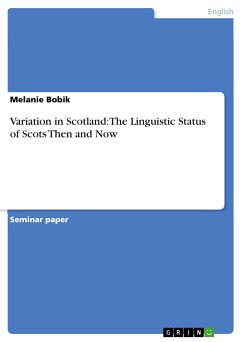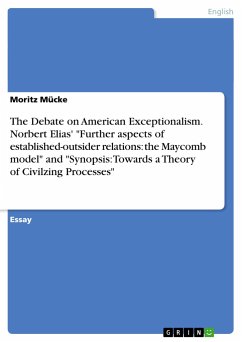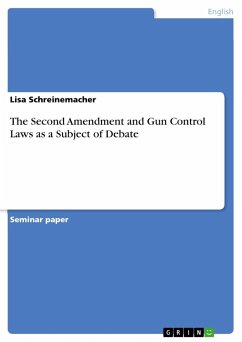Seminar paper from the year 2005 in the subject English Language and Literature Studies - Linguistics, grade: 1.0, University of Duisburg-Essen (Department of English Linguistics), course: Developments in modern Linguistics, language: English, abstract: In 1994, when Steven Pinker's book "The language instinct" was published, the linguistic world was confronted with the renewed debate, whether language comes from innate ideas or is just the result of experiencing and learning. This important debate which concerns linguistics until today will be the topic of the following work. The important question is, if a language instinct really exists and which evidence one can provide to assume that our language ability is inherited. Until today, there is great discussion and speculation about innate language ideas and the most important proponent for them nowadays is Steven Pinker. To set his nativist ideas in an appropriate context, it is necessary to explain where the ideas of "nativism"and the opposite linguistic school "empiricism" come from and what characteristics they show. This constructs a context and prepares a base for the focus on Pinker's book. The most important founder of today's nativist thoughts is certainly Noam Chomsky, whose ideas were the basis for Pinker's assumption of a language instinct. For this reason, I will present a short summary of Chomsky's ideas as the last aspect of the first chapter. Pinker's arguments put forward in his work "The language instinct" will form the main part and second chapter of my work. I will present his definition of a language instinct and his given evidence for its existence. Because of the complexity of the pieces of evidence put forward in his whole work, I will pick up two of his most important aspects for innate language ideas: Pidgin and creoles and the case of the KE-Family. Afterwards, I will focus on two of his critics, Geoffrey Samspon and Stefan Schaden, because they composed both works being directresponses to Pinker's "The language instinct". This will permit us to discuss the question about its existence and which of the arguments for and against it appear more convincing. To prepare this discussion at the end, I will particularly have a closer look at Schaden's and Sampson's explicit refutes concerning Pinker's main points of evidence. As a last step, I will summarize and discuss the arguments of the two sides carefully and complete my work with drawing my personal conclusion about the important question, if a language instinct really exists.








